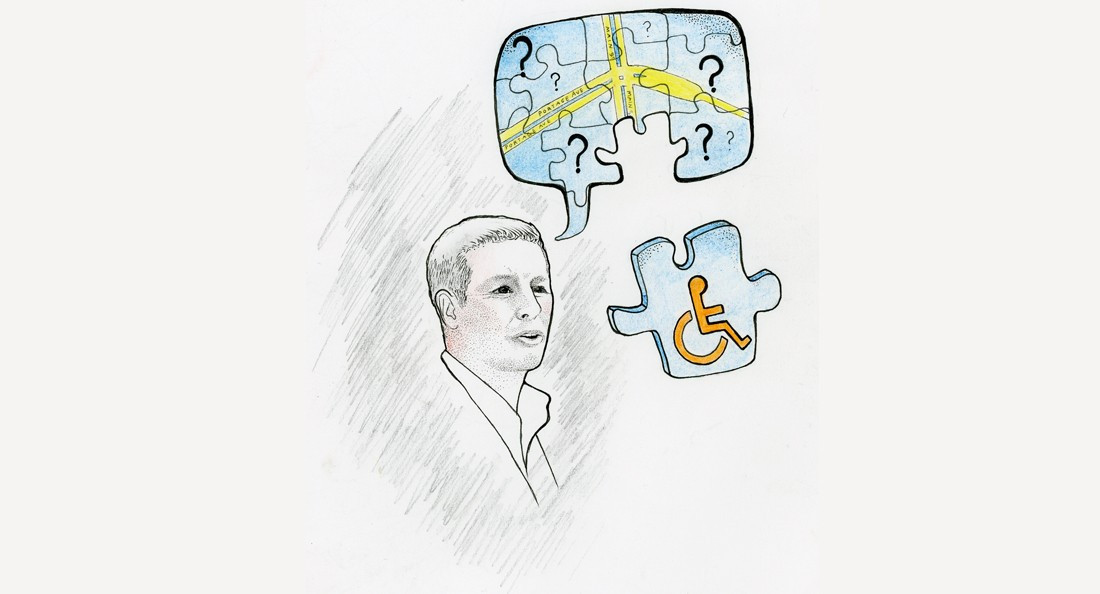It’s not our main concern
The championing of Portage and Main
This year’s ballot question of opening Portage and Main to pedestrians has been championed as the chief accessibility issue for Winnipeg citizens across the city. All over the internet, able-bodied people are commenting on the opening of Portage and Main as necessary for the accessibility of
the city.
The increase in commenting on the accessibility of the city has shifted toward one topic exclusively: the opening of two blocks of Winnipeg. And while it is important for many reasons, other accessibility concerns that have been vocalized by disabled citizens of Winnipeg continue to be ignored.
Outside of Portage and Main, Winnipeg is riddled with accessibility problems and segregatory policies that keep disabled folks outside of downtown Winnipeg. However, able-bodied people continue to remain ambivalent and absent from broader disability justice advocacy.
Able-bodied activists cannot claim to be an ally of the disability justice movement if they only care about one issue, and if the one issue they care about directly impacts them. Our voices are being tokenized in order for campaigns to be deemed inclusive, without supporting campaigns that do not directly impact able-bodied folks.
The able-bodied movement around the downtown movement continues to ignore many of the other asks of the disability justice movement. Examples of this are expansive, however, none of them seem to be a ballot issue.
Handi-Transit, since it’s first privatization in the 1990s, has been perpetually violent to the disability community. Handi-Transit has a long list of violations, stretching from sexual and verbal abuse from drivers, to refusing passengers or letting them off on the side of the road. In 2016, the ombudsman launched an official investigation into the City of Winnipeg’s Handi-Transit.
Along with Handi-Transit, the City of Winnipeg continues to be an accessibility nightmare in the winter, with sidewalks rarely being cleared, essentially locking in disabled residents. However, many citizens remain quiet on this, insisting instead for roads to be cleared.
Winnipeg bares a long history of human rights abuses against many different groups, including disabled citizens. And while advocating for Portage and Main on behalf of the disabled community is appreciated, our absence from other conversations will not be forgotten. We will not cease to exist upon the opening of Portage and Main.
Unfortunately, opening Portage and Main will not be some magical solution, like a waving of a wand that will cure disabled folks from isolation in the city. It will be part of a wider solution that will hopefully increase disabled representation not only in downtown Winnipeg, but in City Hall and beyond.
If we care about one aspect of disability rights, we must remain cognizant of other human rights violations perpetrated against disabled citizens, not only the ones with the aesthetically pleasing signs. Our existence exists outside of a referendum question, and our problems expand beyond the margins of
the centre of city.
While many of us appreciate the able-bodied advocacy, do not forget about us when it is not the trendy campaign. Remember us in all of the elections. Remember us in the slashes to health care, social services, snow-filled sidewalks and cuts to public transit.
Megan Linton is the national Disability Justice Commissioner for the Canadian Federation of Students. She is a mad activist, sometimes seen clutching a cane, other times, clutching a sprinkled doughnut. You probably owe her a doughnut for unpacking your deep-seated ableism.
Published in Volume 73, Number 6 of The Uniter (October 18, 2018)








